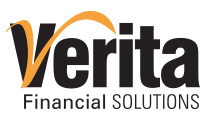Income protection policies pay you a regular income if you are unable to work due to sickness or accident.
Most of the time you will be able to insure up to 75% of your gross income, and your premiums may also be tax deductible.Many of us insure assets such as, home, car, jewellery, etc, yet most of us don’t insure the most important asset we have – our income.
Income Protection policies are extremely flexible to assist with affordability. You can choose your waiting period, ranging from 2 weeks to several months. Your benefit period can range between, 1 year to age 65. Keep in mind, the longer the waiting period the cheaper your premium.
Some of the benefits of Income Protection policies can be found below:
Discounts available to non-smokers
Your cover is automatically renewable each year to age 65 regardless of changes to your health, occupation or pastimes
Automatic indexation on your benefits each year in line with the CPI
Worldwide cover, 24/7
If you are self employed, a Business Expenses insurance policy is a financial back up plan for your business. Business expenses insurance is used to cover fixed business expenses if you are unable to work due to sickness or injury. It can keep the business running while you take time out to recover. Many people think that workers' compensation, business interruption insurance, or even your income protection policy will cover these expenses, but in actual fact they won't. Your personal income replacement cover is designed to cover up to 75% of your own taxable income from your business. But if you have fixed business expenses and you don’t also cover these, you've only got half the protection you need.
Business Expenses Insurance gives you the confidence to recover from illness or injury knowing that you've got a plan in place to keep the business running if you're unable to work.
Business Expenses insurance covers your fixed business costs, as a monthly reimbursement, so you can focus on your recovery - and not your bills! It includes:
office rent or fees plus interest on your property loan.
leases on cars, equipment or machinery.
insurance and security costs.
bills - such as utilities
salaries and staff superannuation (for employees who don't generate any business revenue).
costs of a locum to help out while you focus on getting better.


